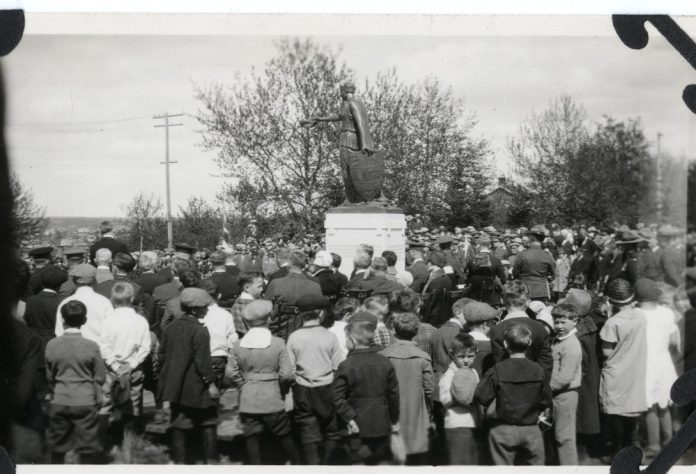
In the late ‘90s, a young man visited a seniors home in Regina carrying a microphone and a tape recorder. His goal? To find seniors willing to tell him about their lives.
One of those seniors was my grandfather, Donald Maclean, one of the most affable men I’ve ever met. I can’t imagine him turning down a chance to chat with a stranger, regardless of the subject.
My mom still has the tape he made. In between antidotes about his childhood, family life, and school days he stopped briefly to talk about the Second World War. My grandfather was one of roughly 700,000 Canadians who served in it while under the age of 21. In his case, he lied about his age and enlisted as a 17-year-old. By the time he was actually 18 he was landing on Juno Beach.
The saddest part of the tape is how little information it contains. My grandfather told the young man he didn’t want to talk about his wartime experiences, not because he was still traumatized, but because presenting an accurate picture would take too much time. He hoped the young man would come back with another tape so they could make another recording, and this time talk about nothing but his war experiences. Sadly, that day never happened.
In his brief aside about the war, my grandfather mentioned two things. One, regretting that he never claimed to be 19 instead of 18 (the Canadian Army frequently accepted recruits who looked 18, even if they weren’t, but had strict guidelines about sending them overseas. By telling them he was 18, my grandfather said, he had to wait even longer for his deployment). The second was how close the bonds were with the men he fought alongside.
I sincerely wish he had made another recording, not out of some morbid desire to revel in the horrors of war from the safety of my living room, and not even out of a nostalgic wish to hear my grandfather’s voice again. I wish we had those recordings because it’s easier to forget when you don’t.
Canada and what we call the West have enjoyed one of the rare periods of history where superpowers haven’t fought each other. Obliviously there are serious conflicts in other parts of the world where thousands have been killed and tens of thousands displaced to become refugees, but the horrors of a Passchendaele or a Dieppe, where two or more serious military powers collide and hundreds of lives are wiped out in hours—not days or weeks—are as foreign to us in the West as cell phones and cable television were to our great-grandparents. Sadly that may be changing.
With the war in Ukraine dragging on, and a new one possibly starting up in Gaza, the torches and powder kegs for a new world war are ready and waiting. All it takes is someone foolish or wreckless enough to light the fuse. That’s why we need veterans who are willing to talk about their past experiences. That’s why we need refugees and other civilians to talk about the costs. Without their voices, it’s easy to forget.
I think about this because most of the men and women who served in the Second World War have passed on. My grandfather died before 9/11. Most of his generation died in the decades after. Now, Canadians look to veterans from other conflicts to hear their stories, to remember why wars are so costly in the first place.
I understand if this is something younger veterans are less than thrilled about. I can confirm from my own experience as a reporter that Second World War vets are much more willing to talk about their experiences than any other generation. Even combat vets who saw a lifetime of death and destruction in only a few years are willing to recount their experiences, if only briefly. Korean vets, Afghanistan vets, and peacekeepers are much less forward. Many refust to let people know they are veterans at all.
I hope that changes as time passes on. Once again, that’s not because I get some morbid thrill out of listening to people recount stories of pitched battles and bloody victories and losses. It’s because every generation needs people to remind them the cost of war is shockingly high.
If we ever get to a place where large-scale war becomes a thing of the past, future generations will need books, videos, audio recordings, and yes, heaven forbid, newspapers where they can read, see or hear first-hand accounts from the people who fought in past conflicts. They need primary sources showing them why war is so bad. The cost of forgetting is extremely high.

